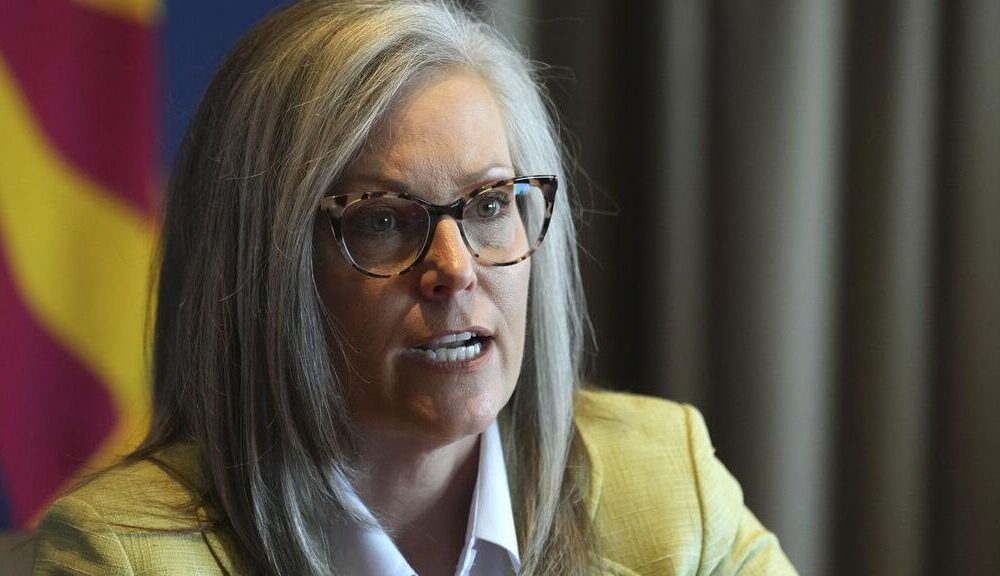UPDATE: Arizona Governor Katie Hobbs has condemned the proposed compact from President Donald Trump for the University of Arizona, calling it a “bad deal” that threatens academic integrity. This urgent development comes as the Arizona Board of Regents prepares for a critical decision amid rising concerns over federal demands that could reshape the university landscape.
In a statement made during a recent interview, Hobbs voiced her apprehension about the 10-page compact presented to the UA and eight other universities on October 1, 2023. It stipulates various conditions for accessing federal funding, including mandatory standardized testing for all undergraduate applicants and requirements that could infringe on academic freedom. As of late Friday, five of the nine institutions, including prestigious schools like the University of Virginia and Massachusetts Institute of Technology, have already declined the offer.
“This compact borders on censorship,” Hobbs said, addressing the potential implications of revising university governance to create an environment deemed acceptable by the Trump administration. The compact demands that universities foster a “vibrant marketplace of ideas,” while also enforcing a controversial cap on international students—limited to 15% of the undergraduate population.
The urgency of the matter is amplified by the fact that the Arizona Board of Regents was convened late Friday to discuss the proposal, with feedback due to the White House by Monday. A final decision from the UA is required by November 21, 2023. With this timeline, the stakes are high for university leadership and the academic community.
Hobbs, who is a voting member of the Board, opted not to participate in the closed-door session, emphasizing that the decision rests with the regents. “I think every university president I talk to is committed to keeping tuition as low as possible,” she stated, highlighting the challenge of balancing financial constraints with federal demands. The governor noted that state support for higher education has not kept pace with inflation, complicating the landscape for tuition rates.
In a related concern, Hobbs pointed out that the compact threatens to constrain the UA’s ability to attract international students, who constitute 3.3% of the undergraduate body but contribute significantly to tuition revenue—estimated at $43,100 per year for non-Arizona residents. “The money coming from foreign students often makes up costs that in-state tuition doesn’t cover,” she explained.
The backlash against the compact is growing. Nearly 80 top professors from UA have urged President Suresh Garimella to reject the proposal, fearing it could jeopardize existing federal benefits estimated at around $500 million if the university is found in violation of its terms. The Faculty Senate also voted overwhelmingly against the compact, citing threats to academic independence.
“We’re witnessing an attempt to impose authoritarian values on academia,” said Rex Scott, chair of the Pima County Board of Supervisors, which also voted against the compact. The Tucson City Council unanimously declared the proposal an “unacceptable act of federal interference.”
As the deadline approaches, the UA faces immense pressure to navigate these complex demands while safeguarding its academic mission. The implications of this decision extend far beyond the university, influencing the future of higher education in Arizona and potentially setting a precedent for institutions nationwide.
The clock is ticking, and the UA community watches closely as developments unfold. The potential for a significant shift in university governance and funding structures is at stake, prompting urgent discussions among faculty, students, and stakeholders alike. What happens next could redefine the relationship between federal funding and academic freedom in the United States.







